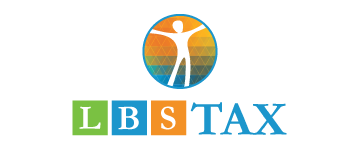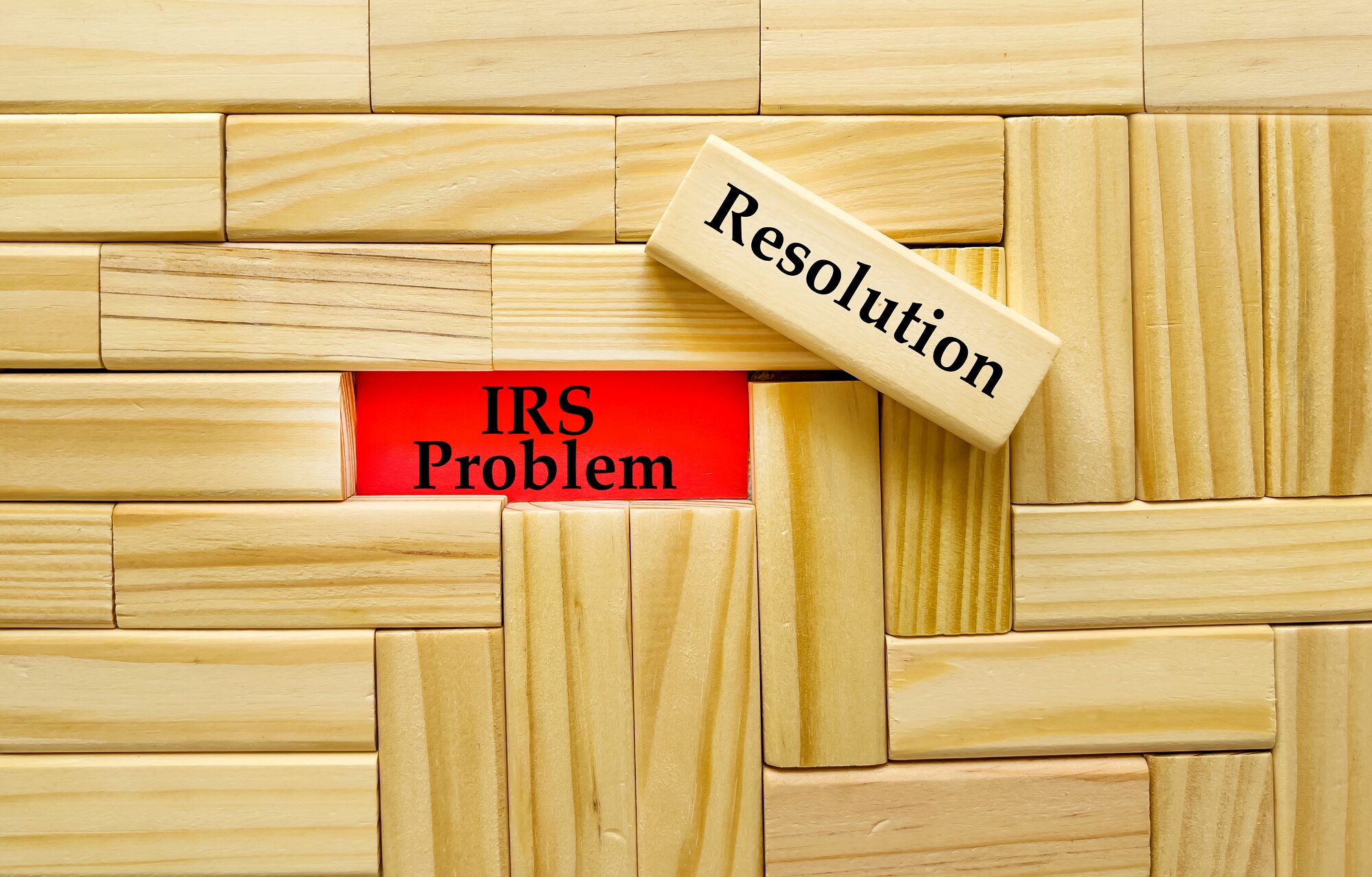Essential Strategies to Protect Your Earnings and Stay Compliant
As a gig worker, you get to enjoy the flexibility of setting your own schedule, choosing what you work on and who you work with, but with that independence comes the responsibility of managing your taxes.
In fact, there are a lot of gig workers that are surprised to learn that if they don’t pay their taxes, they may be at risk of IRS wage garnishment, an action that can severely disrupt your income and finances.
In this article, we will review how IRS garnishment works, what steps you can take to avoid it, and how tax relief professionals like the ones at LBS Tax & Accounting Services can help you prevent or stop garnishments and all your tax problems if they’ve already begun.
What Is IRS Wage Garnishment?
IRS wage garnishment occurs when the government takes a portion of what you earn to settle unpaid tax debt. For example, if you owe the IRS and do not address the debt, they can take action to collect the money you owe by garnishing your wages.
For gig workers, this can mean having a percentage of your income withheld directly from the payments you receive for your work, which can cause immediate financial strain and snowball into many other issues.
While it’s more common for employees to have taxes withheld automatically, self-employed individuals, like gig workers, are still very much responsible for paying their taxes, including self-employment taxes, throughout the year. If you fail to make estimated tax payments or underreport your income, the IRS may begin the garnishment process.
How Wage Garnishment Happens

Wage garnishment is not an immediate action – it’s a process that builds up over time. The first step involves the IRS sending notices to inform you of the tax debt and giving you the chance to settle the amount owed.
If these notices are ignored, the IRS may issue a Final Notice of Intent to Levy, which is your final warning that they intend to garnish your wages.
It’s always important not to ignore any communication from the IRS. In this scenario, once the Final Notice of Intent to Levy is issued, the IRS can begin the garnishment process.
For gig workers, this usually means that the IRS will contact your clients or payment processors to withhold a portion of your earnings. This can make it difficult to access your income, as the money is withheld directly before you receive it.
Struggling with tax debt or facing IRS garnishment?
Don’t to reach out for your tax service appointment today!
Steps to Avoid IRS Garnishment
The best way to avoid wage garnishment is to stay proactive and address your tax obligations early. Here are a few key actions you can take to ensure you don’t find yourself facing garnishment:
- Paying Estimated Taxes on Time
As a self-employed individual, you are required to pay self-employment taxes in addition to regular income taxes. The IRS expects you to pay estimated taxes on a quarterly basis. If you miss these payments, the IRS can assess penalties and, eventually, initiate garnishment. To avoid this, make sure to set aside money throughout the year and pay your taxes quarterly. Keeping track of your income and setting aside funds can make quarterly payments easier to handle.
- File Your Tax Return On Time
Even if you can’t pay the full amount you owe, filing your taxes on time is crucial. If you fail to file, the IRS can assess additional penalties, making the situation worse.
Filing on time, even if you’re unable to pay, shows the IRS that you’re making an effort to comply with the law, which may help you in negotiating a payment plan or other resolution options.
- Set Up a Payment Plan
If you can’t pay your tax debt in full, it’s important to explore payment options. The IRS offers installment agreements that allow you to pay your debt in manageable monthly payments. Setting up a payment plan before garnishment begins can protect your income and prevent further collection actions. Make sure to stay current with your payments to avoid any additional penalties or collection efforts.
- Keep Track of All Income and Expenses
It’s essential to keep accurate records of your income, especially as a gig worker. The IRS will only garnish your wages if they know you owe taxes, so the more organized you are, the easier it is to comply with tax regulations.
By staying organized and maintaining detailed financial records, you reduce the chance of any issues found in your filings that could lead to back taxes and, eventually, garnishment.
What to Do if You Receive a Garnishment Notice
If you’ve already received a garnishment notice, don’t panic. While garnishment is a serious matter, it is not the end of the road. There are steps you can take to resolve the issue before the garnishment takes effect.
First, contact the IRS immediately. Ignoring the notice will only make matters worse. You have the right to appeal the garnishment, and in some cases, the IRS may be willing to halt the garnishment if you show that it would cause undue financial hardship. Additionally, you may be able to request a payment plan or even an Offer in Compromise, which could reduce the total amount you owe.
However, it’s important to note that negotiating with the IRS on your own may be an uphill battle, and that’s where a tax relief professional can help. They specialize in negotiating with the IRS, and they can advocate on your behalf to stop garnishments and set up a manageable solution. They can also help you explore other options, such as applying for Currently Not Collectible status, which temporarily suspends collection actions.
How Tax Relief Professionals Can Help
Tax relief professionals are experts at navigating the complexities of IRS tax laws and can help you prevent or stop wage garnishment. If you’re already facing garnishment, a tax relief professional can:
● Negotiate with the IRS – A tax relief professional will work with the IRS to negotiate a payment plan, reduce penalties, or potentially settle your tax debt for less than you owe (Offer in Compromise).
● Stop Garnishments – They can file appeals to stop garnishment actions and help you secure more favorable terms.
● Represent You in IRS Communications – A professional can handle all communications with the IRS on your behalf, taking the stress off you and ensuring that the process moves smoothly.
● Offer Long-Term Solutions – Beyond just stopping garnishments, tax relief professionals can help you avoid future tax issues by providing advice on managing your tax responsibilities and avoiding pitfalls in the future.
As a gig worker, it’s essential to understand the potential risks of IRS garnishment and take steps to avoid it. By staying on top of your estimated tax payments, filing your returns on time, and keeping accurate records, you can prevent tax issues before they arise.
Choosing LBS Tax Services: The Smart Choice for Your Tax Needs
At LBS Tax Services, we take pride in providing the best solutions for our valued customers. With our team of dedicated tax professionals, we specialize in managing payroll taxes and ensuring that your business stays compliant with all regulations. Our extensive experience in handling tax audits means that you can trust us to guide you through every step of the process, making it as smooth and hassle-free as possible.
We are committed to showcasing our excellent services, which are designed to meet your unique tax needs. Don’t just take our word for it—be sure to check out our testimonials from satisfied clients who have experienced the LBS difference firsthand.
Let us help you navigate the complexities of taxation with confidence. Contact us today and discover how we can support your business!
Tax services we provide
- Accountant in Chandler AZ– We provide expert financial advice and meticulous record-keeping to help businesses and individuals manage their finances effectively.
- Bankruptcy in Chandler AZ– We guide clients through the complexities of filing for bankruptcy, ensuring they understand their options and make informed decisions.
- Bookkeeper in Chandler AZ– We offer precise tracking of financial transactions and helps maintain accurate financial records, allowing businesses to focus on their core operations.
- Business Tax Consulting in Chandler AZ– We deliver tailored strategies to optimize tax liabilities and ensure compliance with ever-changing tax regulations.
- Business Tax Returns in Chandler AZ– We ensure timely and accurate filing while maximizing deductions for business owners.
- Collection Appeals in Chandler AZ– We assist clients in disputing unfair collection practices and negotiating reasonable solutions with creditors.
- CPA in Chandler AZ– We provide comprehensive accounting services, tax preparation, and strategic financial planning to help businesses thrive.
- Delinquent Tax Returns in Chandler AZ– We specialize in helping clients resolve outstanding tax issues and minimize penalties.
- Financial Statement Preparation Service in Chandler AZ– We offer detailed and accurate financial reports that support informed decision-making for businesses and stakeholders.
- IRS Bank Levy in Chandler AZ– We help clients navigate and resolve issues arising from bank levies, working to protect their assets and restore financial stability.
- IRS Debt Forgiveness in Chandler AZ– We guide clients through the process of negotiating with the IRS to reduce or eliminate tax debts.
- IRS Payment Plan in Chandler AZ– We assist clients in setting up manageable payment arrangements to settle their tax liabilities over time.
- IRS Tax Audits in Chandler AZ– We provide representation and support to clients undergoing audits, ensuring their rights are protected and guiding them through the process.
- Payroll Services in Chandler AZ– We handle all aspects of payroll processing, ensuring compliance with tax regulations and timely employee payments.
- Payroll Tax Relief in Chandler AZ– We assist businesses in resolving payroll tax issues and negotiating payment options with the IRS.
- Small Business Tax Professional in Chandler AZ– We offer personalized tax planning and preparation services tailored to the unique needs of small business owners.
- Tax Relief Program in Chandler AZ– We help clients access programs designed to alleviate tax burdens and provide financial respite.
Struggling with tax debt or facing IRS garnishment?
Don’t to reach out for your tax service appointment today!

